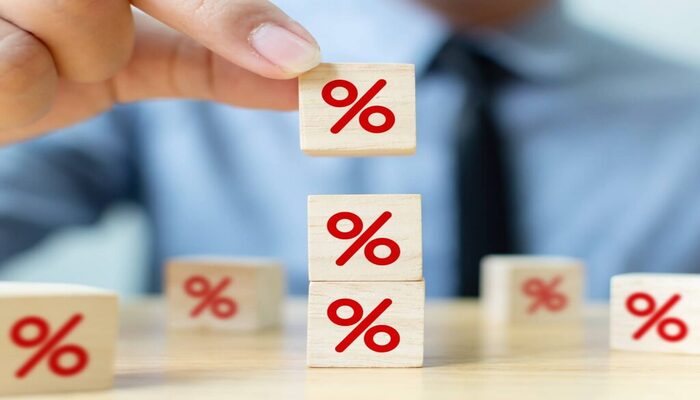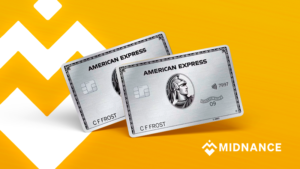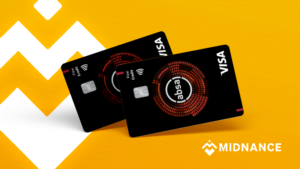When you’re thinking about taking out a loan to buy a house, a car, or finance any other major project, one of the most important decisions you need to make is the type of interest rate you want. Two common options are fixed and variable interest rates. Both have their advantages and disadvantages, and the choice between them depends on various personal and economic factors. Understanding how fixed and variable interest rates work can help you make the right decision for your financial situation.
Fixed interest rate: Stability and predictability
The fixed interest rate is a key feature of loans that provides stability and predictability to borrowers. By opting for a fixed rate, borrowers can count on the comfort of knowing that the value of their monthly installments will remain constant throughout the entire loan period, regardless of changes in interest rates that may occur in the financial market.
This makes budgeting simpler and more reliable, as it eliminates the risk of unpleasant surprises related to unforeseen increases in payment installments, providing a solid foundation for long-term financial planning. However, it is important to note that in exchange for this stability, fixed-rate loans may have slightly higher upfront fees than variable-rate loans, which can affect the upfront costs of the loan.
Advantages of Fixed Interest Rate
Predictability: One of the biggest advantages of a fixed-rate loan is predictability. You know exactly how much you’ll pay each month, which makes long-term financial planning easier. This is a significant benefit for individuals or families who value stability and want to avoid financial surprises.
Protection Against Increases: Even if market interest rates rise, your fixed rate will remain the same. This protects you from unexpected additional costs and can be especially valuable in periods of unstable or increasing interest rates.
Easy to Budget: The stability of fixed-rate installments makes it easy to create a budget as you don’t have to worry about variations in payments. For those who need to plan their finances carefully, this consistency is a significant advantage.
Disadvantages of Fixed Interest Rate
Higher Initial Rate: Typically, fixed interest rates tend to be slightly higher than the initial rates of variable-rate loans. This can result in higher monthly payments from the start, impacting your immediate financial flexibility.
Fewer Long-Term Savings: If market interest rates drop significantly after the contract is signed, you will not benefit from these reductions. This means you could miss out on potential long-term savings that could have been achieved with a variable-rate loan.
Variable interest rate: Flexibility and risk
The variable interest rate, on the other hand, fluctuates according to changes in market interest rates. This means that your monthly installments can go up or down over time, depending on economic conditions. Understanding how fixed and variable interest rates fluctuate is essential when making a decision, as this type of rate offers both potential rewards and risks.
Advantages of Variable Interest Rate
Lower Upfront Fees: Generally, variable-rate loans have lower upfront fees compared to fixed-rate loans. This can result in more affordable monthly installments at the beginning of the loan, making it an attractive option for borrowers who want to minimize initial costs.
Potential for Long-Term Savings: If interest rates fall, your installments will also decrease, allowing you to save money over time. This flexibility can be appealing if you are confident that interest rates are likely to decline during the repayment period.
Disadvantages of Variable Interest Rate
Lack of Predictability: The biggest drawback of a variable-rate loan is the lack of predictability. Your monthly installments can increase substantially if interest rates rise, potentially putting a strain on your budget.
Risk of Higher Payments: In a scenario of constantly rising interest rates, you may end up paying more in the long run than you would with a fixed-rate loan. This can pose a risk to those who have a tighter financial margin or are not prepared to handle fluctuations in payment amounts.
How fixed and variable interest rates compare
When considering how fixed and variable interest rates compare, it’s essential to align the choice with your financial goals and market outlook. Fixed interest rates offer predictability and protection, making them ideal for long-term planners who want stability. On the other hand, variable rates provide an opportunity for lower initial payments and potential savings, but at the cost of unpredictability.
Which choice is right for you?
The choice between a fixed and variable interest rate depends on several factors, including your financial goals, risk tolerance, and economic outlook. It’s crucial to know how fixed and variable interest rates align with your long-term financial plans.
Fixed Rate is a Good Option If:
You Value Financial Stability and Want Predictable Monthly Installments: If maintaining consistency in your financial commitments is essential, a fixed interest rate can be a good choice.
Interest Rates Are Historically Low: Locking in a low rate provides protection against future increases and keeps your payments affordable.
You Plan to Keep the Loan for a Long Time: Avoiding the risk of rising interest rates over an extended period is crucial in long-term loan scenarios.
Variable Rate May Be Suitable If:
You Are Willing to Take More Risk: If you’re open to potential increases in monthly payments in exchange for lower initial rates, a variable rate could be the right option.
Interest Rates Are Historically High: If you believe rates will decrease, you can potentially save money over time with a variable rate.
You Intend to Repay the Loan in a Short Period: Short-term loans are less likely to experience drastic rate changes, reducing the risks associated with variable rates.
Factors to consider when choosing a loan
Economic Outlook: Assessing the current market environment and economic trends is essential. Understanding how fixed and variable interest rates are affected by inflation, central bank policies, and other economic factors can help you make an informed decision.
Financial Goals: Think about your short-term and long-term goals. Are you planning to pay off the loan quickly, or will this be a long-term commitment? Your repayment timeline should influence your decision.
Risk Tolerance: Be honest about your tolerance for risk. If the idea of fluctuating payments causes stress, a fixed interest rate may provide more peace of mind. Conversely, if you can handle some risk in exchange for lower costs, a variable rate might be appealing.
The importance of expert Advice
Choosing between fixed and variable interest rates is an important decision that will affect your personal finances in the long run. Both options have advantages and disadvantages, and the right choice for you will depend on your financial goals and risk tolerance.
It is advisable to consult a financial advisor or loan specialist before making a final decision, as they can help you assess market conditions and determine which option is best suited for your specific situation. Regardless of the choice you make, it is critical to read all the details of the loan agreement carefully and fully understand the implications of fixed and variable interest rates before signing.
How fixed and variable interest rates shape your financial future
Understanding how fixed and variable interest rates impact your loan can be the key to making an informed decision. Fixed rates offer stability, predictability, and protection against rising costs, which can be appealing for those looking for a straightforward and reliable repayment plan. In contrast, variable rates provide flexibility and the potential for savings, but also come with higher risks and uncertainty.
By considering your financial goals, market conditions, and risk tolerance, you can choose the interest rate that best fits your needs. Whether you prefer the stability of a fixed rate or the potential savings of a variable rate, knowing how fixed and variable interest rates affect your loan decisions will empower you to make a sound financial choice.





